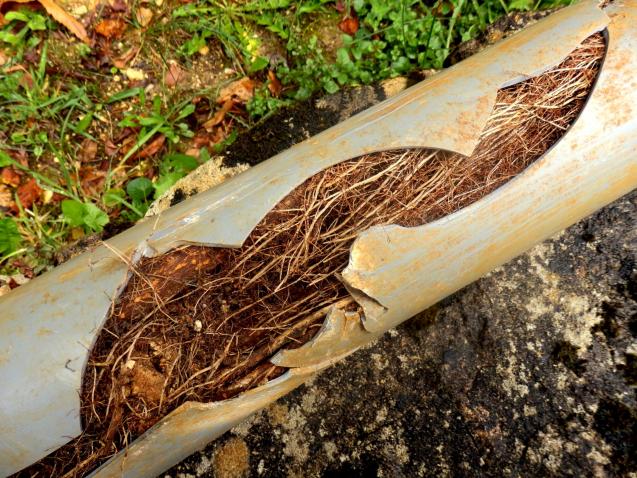
Signs Your Hot Water System Needs Replacement: What Every Homeowner Should Know This Winter
By Fluid Plumbing|August 25, 2024
During the winter months, a fully functioning hot water system becomes essential for everyday comfort and well-being. Imagine waking up to a freezing winter morning only to find the shower water running cold; it's not just inconvenient, it could be downright harmful. A failing hot water system disrupts your daily routine and poses a risk to your overall home infrastructure. This article aims to provide homeowners with vital information on the signs that indicate a failing hot water system and the importance of timely replacement to avoid unnecessary emergencies.
Inconsistent Water Temperature
One of the most noticeable signs that your hot water system might need replacement is inconsistent water temperature. If your water temperature fluctuates randomly while in use, it can be more than just an irritant; it might signify a deeper issue. Often, mineral deposits accumulate on the heating elements, reducing their efficiency. Over time, an older heating system becomes less capable of maintaining a steady temperature, leading to these frustrating fluctuations. Furthermore, thermostat issues can also play a role in inconsistent heating, causing uncomfortable surprises during your morning shower.
Decreased Hot Water Supply
Another common symptom of a failing hot water system is a decreased hot water supply. If you find yourself running out of hot water much quicker than before, it's time to take note. The size of your tank compared to your household needs is a significant factor to consider. An older system loses its efficiency over the years, struggling to heat water to its full capacity. Additionally, sediment buildup inside the tank can also reduce its overall capacity, leaving you with less hot water and more frustration.
Strange Noises from the System
If your hot water system starts making strange noises, it’s essential to pay attention. Common noises such as banging, hissing, or popping aren't just annoyances - they can indicate serious underlying problems. These sounds are frequently caused by sediment buildup, which insulates the heating element, making it work harder and less efficiently. Persistent noises are often signs that something is going wrong inside your hot water system, and ignoring them could lead to more severe issues down the line.
Rusty or Discolored Water
Rusty or discolored water coming from your taps is another clear indicator that there may be a problem with your hot water system. When rust becomes evident in your water, it typically indicates that the tank itself is corroding from the inside out. Consuming or using rust-colored water is not just unpleasant; it can pose health risks as well. Old pipes may also contribute to water discolouration, but frequently, an ageing hot water tank is the root cause. In such cases, replacing the tank is often the most effective solution.
Visible Leaks and Pooling Water
Visible leaks and pooling water around your hot water system are glaring signs that it’s time for an urgent check-up. Small, minor leaks can often go unnoticed, but they can still cause significant water damage over time. More severe leaks not only damage your home but also affect the efficiency of the system, increasing your utility bills. Timely assessment and replacement are crucial to prevent further damage and potential flooding issues.
Frequent Repairs and Rising Utility Bills
If you find yourself calling a professional for frequent repairs, it might be more economical to replace the entire hot water system. Comparing the cost of continuous repairs with the price of a new system often reveals that replacement is the wiser option. An inefficient system not only demands frequent fixes but also drives up your energy costs, contributing to higher utility bills. When repairs become a temporary band-aid for a larger problem, it's time to consider investing in a new hot water system. The long-term benefits, in terms of both energy efficiency and reduced maintenance costs, make replacement a smart choice. Additionally, comparing different hot water system prices can provide insights into various options that fit your budget and needs.
Conclusion
Recognising the signs of a failing hot water system can save homeowners from winter discomfort and potential damage to their homes. Inconsistent water temperature, decreased hot water supply, strange noises, rusty or discolored water, visible leaks, and frequent repairs are all tell-tale signs that your hot water system might need replacement. Addressing these issues before winter fully sets in ensures a warmer, more comfortable season ahead. Consulting a professional for an assessment is an essential first step towards determining whether your current system can be salvaged or if it's time for an upgrade. A new, efficient hot water system not only promises enhanced comfort and convenience but also pays off in the long run, making it a valuable investment for any homeowner.
Inconsistent Water Temperature
One of the most noticeable signs that your hot water system might need replacement is inconsistent water temperature. If your water temperature fluctuates randomly while in use, it can be more than just an irritant; it might signify a deeper issue. Often, mineral deposits accumulate on the heating elements, reducing their efficiency. Over time, an older heating system becomes less capable of maintaining a steady temperature, leading to these frustrating fluctuations. Furthermore, thermostat issues can also play a role in inconsistent heating, causing uncomfortable surprises during your morning shower.
Decreased Hot Water Supply
Another common symptom of a failing hot water system is a decreased hot water supply. If you find yourself running out of hot water much quicker than before, it's time to take note. The size of your tank compared to your household needs is a significant factor to consider. An older system loses its efficiency over the years, struggling to heat water to its full capacity. Additionally, sediment buildup inside the tank can also reduce its overall capacity, leaving you with less hot water and more frustration.
Strange Noises from the System
If your hot water system starts making strange noises, it’s essential to pay attention. Common noises such as banging, hissing, or popping aren't just annoyances - they can indicate serious underlying problems. These sounds are frequently caused by sediment buildup, which insulates the heating element, making it work harder and less efficiently. Persistent noises are often signs that something is going wrong inside your hot water system, and ignoring them could lead to more severe issues down the line.
Rusty or Discolored Water
Rusty or discolored water coming from your taps is another clear indicator that there may be a problem with your hot water system. When rust becomes evident in your water, it typically indicates that the tank itself is corroding from the inside out. Consuming or using rust-colored water is not just unpleasant; it can pose health risks as well. Old pipes may also contribute to water discolouration, but frequently, an ageing hot water tank is the root cause. In such cases, replacing the tank is often the most effective solution.
Visible Leaks and Pooling Water
Visible leaks and pooling water around your hot water system are glaring signs that it’s time for an urgent check-up. Small, minor leaks can often go unnoticed, but they can still cause significant water damage over time. More severe leaks not only damage your home but also affect the efficiency of the system, increasing your utility bills. Timely assessment and replacement are crucial to prevent further damage and potential flooding issues.
Frequent Repairs and Rising Utility Bills
If you find yourself calling a professional for frequent repairs, it might be more economical to replace the entire hot water system. Comparing the cost of continuous repairs with the price of a new system often reveals that replacement is the wiser option. An inefficient system not only demands frequent fixes but also drives up your energy costs, contributing to higher utility bills. When repairs become a temporary band-aid for a larger problem, it's time to consider investing in a new hot water system. The long-term benefits, in terms of both energy efficiency and reduced maintenance costs, make replacement a smart choice. Additionally, comparing different hot water system prices can provide insights into various options that fit your budget and needs.
Conclusion
Recognising the signs of a failing hot water system can save homeowners from winter discomfort and potential damage to their homes. Inconsistent water temperature, decreased hot water supply, strange noises, rusty or discolored water, visible leaks, and frequent repairs are all tell-tale signs that your hot water system might need replacement. Addressing these issues before winter fully sets in ensures a warmer, more comfortable season ahead. Consulting a professional for an assessment is an essential first step towards determining whether your current system can be salvaged or if it's time for an upgrade. A new, efficient hot water system not only promises enhanced comfort and convenience but also pays off in the long run, making it a valuable investment for any homeowner.



